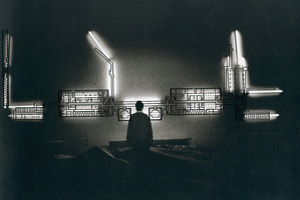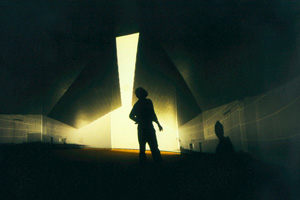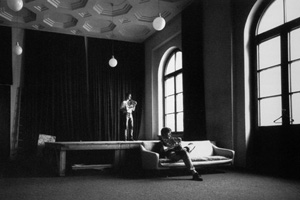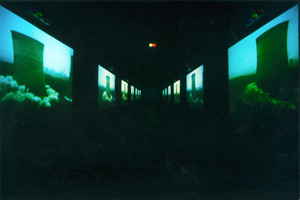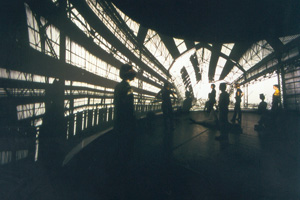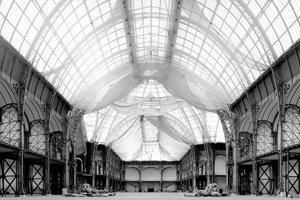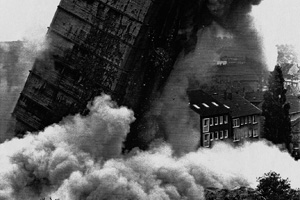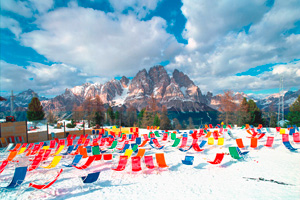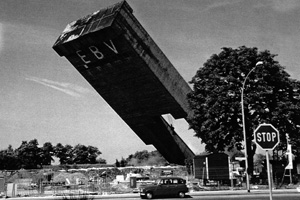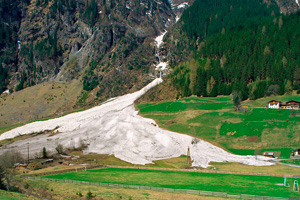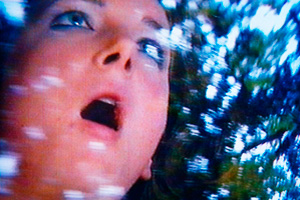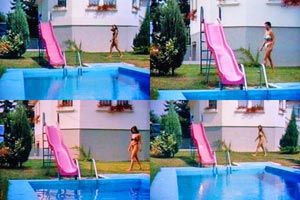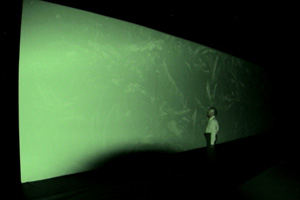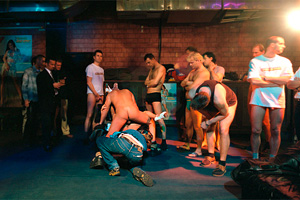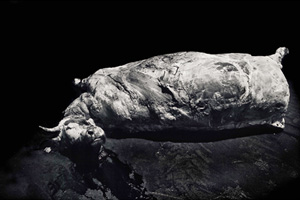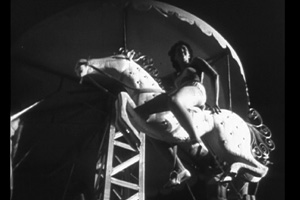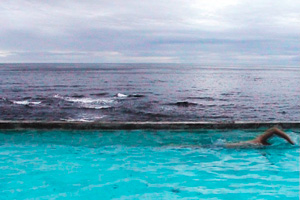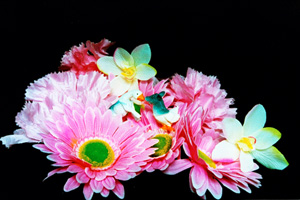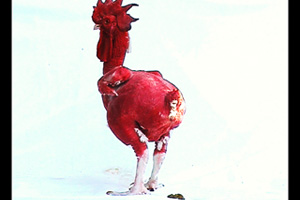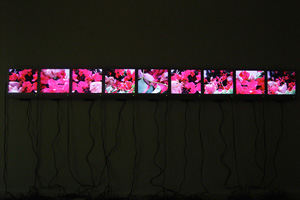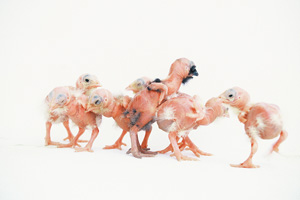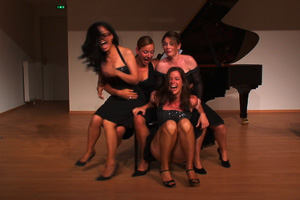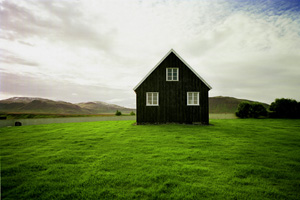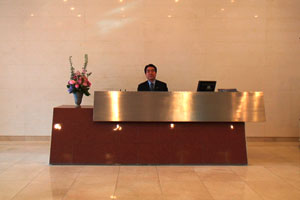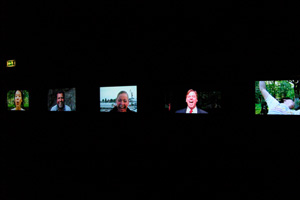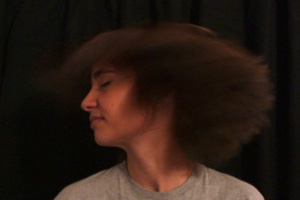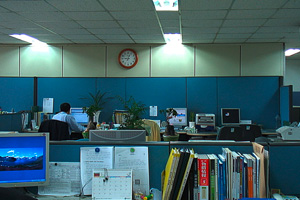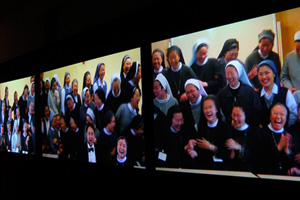Piero Steinle packt die Perversion in bunte Farben: Geflügel -
gezüchtet ohne Federn - rücken in seiner Videoinstallation
fröstelnd aneinander. Die nackte Haut der Todgeweihten bildet
den Kontrast zu den leuchtenden Früchten und Blüten, die Steinle
um das lebende Schlachtvieh kunstvoll arrangiert hat. Das wirkt
zum Schreien komisch und umweht von Vanitas bleibt uns trotzdem
das Lachen im Halse stecken.
BackGrit Weber
Reali, realissime le galline riprese da Piero Steinle: l’artista tedesco autore di Paradiesvogel ha individuato un laboratorio in cui si svolgono ricerche finalizzate alla creazione di un nuovo tipo di pollame: senza piume. La gallina che ha filmato fa pensare a un mostro, a una chimera, a uno di quegli esseri ibridi che troviamo sui capitelli romanici. Eppure non da antichi bestiari devono aver tratto ispirazione i geniali inventori. Pratico, già pronto allo scopo, appositamente modificato per aderire alle esigenze di velocità ed economicità della nostra società, anche il pollo partecipa così della follia organizzata della nostra epoca.Gabi Scardi
... Piero Steinle beweint auf witzige Weise einen Schöpfungsmythos der allerneuesten Art (Ja, diese global operierenden Superkünstler können gleichzeitig weinen und Witze machen.). Das durch das altmeisterlich komponierte Naturtableau trippelnde Federvieh ist hier - zwecks Vereinfachung der kulinarischen Weiterverarbeitung dank modernster Gentechnik - seines namensgebenden Hauptmerkmals beraubt: der Federn. Diese Nutztiere dokumentieren mit visueller Überzeugungskraft ihre ontologische Destination: die Bratpfanne.Gabor Baksay
Was Piero Steinle "Paradiesvögel" (2003) nennt und mal durch barock anmutende Früchteberge, mal nur über weissen Hintergrund von Bild zu Bild laufen lässt, ist tatsächlich aus ökonomischen Gründen federlos gezüchtetes Schlachtgeflügel. Während die Nacktheit der Naturzustand des Menschen ist , resultiert sie hier aus hochtechnologisierten Züchtungsverfahren, und während der nackte Mensch aus dem Paradies vertrieben wurde, setzt Piero Steinle die ihrer Natürlichkeit beraubten Tiere in eine Umgebung von arrangiertem, künstlichen Garten Eden - und vielleicht ist es hier wirklich am schlimmsten, nicht im Sommer zu sterben...."Katarina Klara
Nakedness is usually considered as the most natural and intimate state of a human beeing. It is culturally associated with innocence, pureness, essence, but also precariousness and defencelessness. The original constitution of man in Paradise is conceived as naked - in coherence with the idea of total innocence, happiness and ease. The nakedness applied to animals - in this case of my video installation: chicken - is however the contrary of a natural native state: it is completely artificial - the result of complicate breeding procedures. The 'unnatural' nakedness of an animal is a human product and seems to be a symbol for the human eagerness to play the creator. In the paradox paradise of my project the animals are the naked ones - made by those who were chased outside and who are now desperately seeking to recreate happiness and paradise.... These inverted worlds are an ironic comment on human concepts, pursuits and perceptions.Piero Steinle

